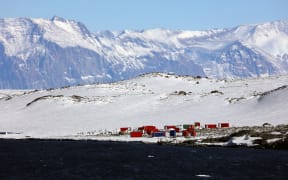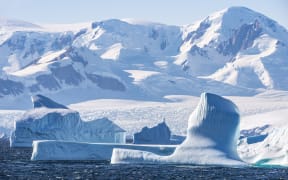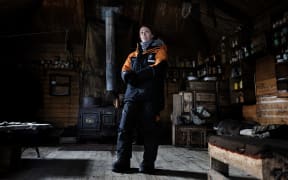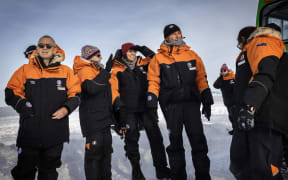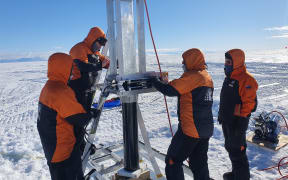By Libby Hogan, ABC
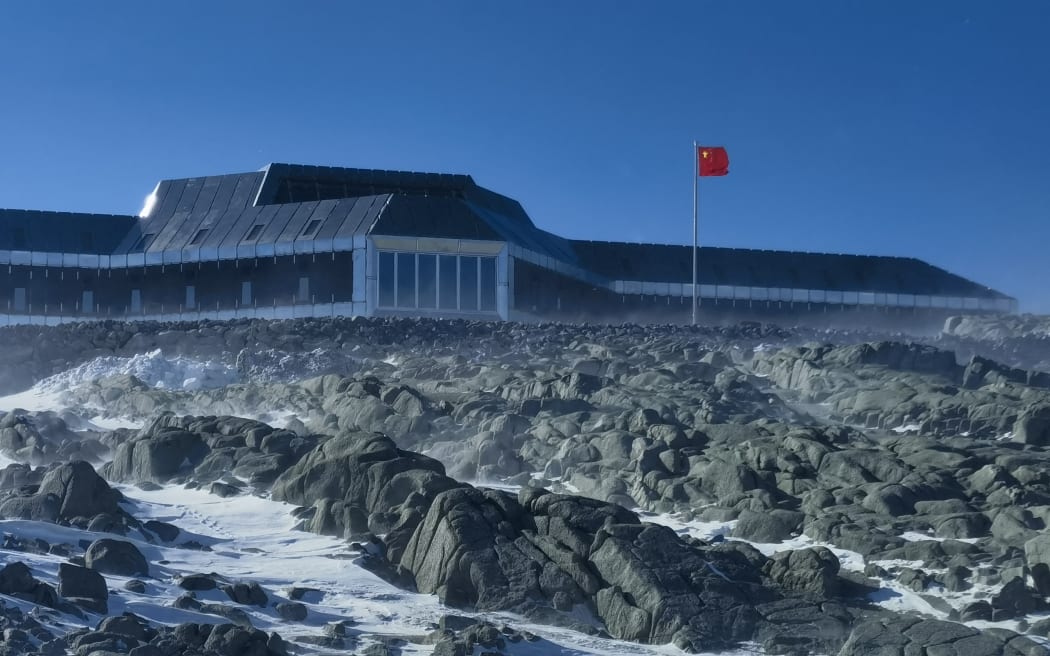
China's Qinling Station in Antarctica, the country's fifth research station in the continent, on it's first day of operation, 7 February, 2024. Photo: AFP/ /Xinhua - Zhang Tijun Jiansong
When China opened its fifth research station in Antarctica this month, analysts sounded alarm bells about potential security threats on Australia's southern doorstep.
Experts warned that China's expanding activity in Antarctica combined with Australia's inaction and lack of funding could lead to Beijing's increased strategic presence in the frozen continent.
The new Qinling base could also improve China's surveillance capabilities and give them more control over transport routes to exploit resources, they say.
However, a Chinese Foreign Ministry spokesperson insisted the new station would be used to "provide a platform for joint scientific exploration and cooperation between China and other countries and help advance peace and sustainable development in the region".
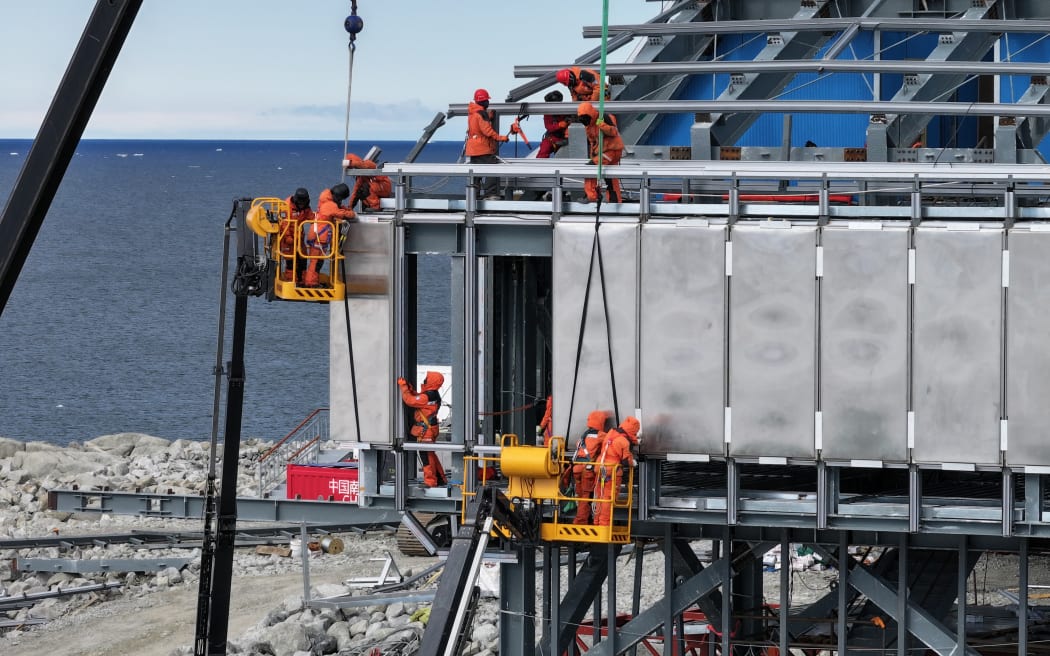
Members of China's 40th Antarctic scientific expedition team work at the construction site of China's Qinling Station in Antarctica, on 9 January 2024. Photo: AFP/ Xinhua - Hu Qing, Zhou Yuan
Elizabeth Buchanan from the Australian National University's National Security College said the Chinese government had a "remarkable ability" to plan for the long term.
"So, they may not be looking to utilise this research station for anything other than collaborative international research for the next 20 years," Buchanan said.
"And then all of a sudden, it's a staging platform ... to strike, to facilitate war if that day ever came."
Why is Qinling station's location so strategic?
The Qinling station, which will be staffed year-round, is located in the ice-free Ross Sea.
"Having the base ice-free means ... personnel can travel [to the base] any time of year, so it is a very strategic positioning," Buchanan said.
"China's positioning of Qinling is covering another part of the Antarctic quadrant of the landmass, presence is power.
"Another location means better for launching satellites."
Buchanan added that Australia should have been building its year-round airstrip there, pooling resources with India and other nations.
Beijing's new Qinling base also fronts the Pacific arc, which has no choke points.
Vessels travelling down the Panama and Suez Canal are facing challenges including falling water levels caused by drought exacerbated by climate change.
This has forced the canals to lower the maximum depth limit on ships and has also led to a drop in marine traffic.
The Drake Passage, a turbulent body of water that lies between South America and China's Great Wall station in Antarctica, may become a more popular alternative route.
Buchanan said China had spent the past 10 years building infrastructure in Chile and parts of Argentina, which has given them the ability to control the passage.
"They could cut off the Drake Passage in all sorts of ways," she said.
"They [China] could make that passage difficult to pass and control shipping … or by having more boats to be able to monitor and block [the passage] with their own boats."
Looming military concerns
The former head of the Australian Antarctic Division, Tony Press, doesn't believe the new Qinling base will pose an increased surveillance risk because China already has surveillance operations in other parts of the world.
He said China's construction of Qinling station met the fundamental obligations of the Antarctic Treaty for peaceful use and non-militarisation as per Australia's inspection of the station in 2020.
Instead, Press said what was "alarming" was Australia's underinvestment in Antarctica for science and logistics capabilities - particularly the lack of capacity to operate in all parts of Antarctica all year round.
Official inspections of stations to monitor compliance can be conducted by any party of the Antarctic Treaty after a consultative meeting.
"I think the idea of building up Australia's capability to do more inspections could be utilised because they keep mutual assurance," Press said.
When asked about security concerns for Australia, a Department of Foreign spokesperson referred the ABC to the terms of the Antarctic Treaty, which prohibits the militarisation of Antarctica.
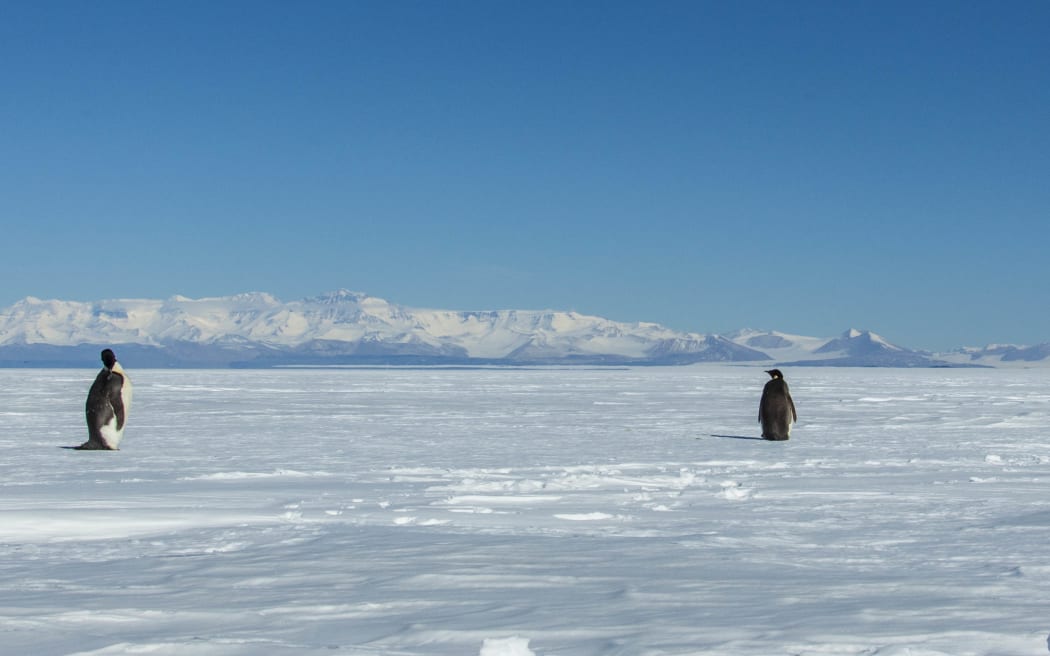
Emperor penguins in Antarctica. Photo:
The treaty was signed by 12 nations in 1959 during the Cold War and designated the continent as a "natural reserve, devoted to peace and science."
Australia, being one of the original signatories of the Treaty, has claimed 42 percent of the continent as its sovereign territory - but that claim is only recognised by four other countries.
Research by professor Anne-Marie Brady from the University of Canterbury uncovered several instances where China failed to declare its use of military personnel in Antarctica, including using a logistics expert from the People's Liberation Army (PLA) to set up the BeiDou-2 global positioning system.
Brady said China's growing number of dual-use satellite receiving ground stations in Antarctica helped to improve the accuracy of China's BeiDou navigation system, which is China's equivalent of GPS.
She said the stations and their territorial ambitions could help them prepare for the "interference of precision missile strikes and for targeting and communicating with various satellite systems."
Brady added that China - along with Russia and the US - was honing its technology to generate high-frequency, electromagnetic pulses, which can be used to jam or even destroy enemy electronics.
Beijing has previously accused Western media of "hyping up" China's activities in Antarctica.
The ABC has approached the Chinese embassy in Canberra for comment.
The resources scramble
As competition for marine resources in the South China Sea intensifies, China could also capitalise on fishing in Antarctica, according to Daniel Bray, an expert in international relations from La Trobe University.
"It's relatively easier for China to come down to Antarctic waters, and fish in those areas, including for krill, which is a key food source for ecosystems and medicines," Bray said.
China has ramped up krill fishing in the rich maritime ecosystem of Antarctica, worrying conservationists and scientists who are calling for stricter controls.
But countries are also finding it challenging to discuss the issues of monitoring and overfishing as they're reluctant to "piss China off too much," Bray said.
"[China's ability], in the Arctic and Antarctic, with its strategic reach, and continuous shipbuilding program at home - pumping out locally built Antarctic icebreakers - offers the potential to lock out other countries if they wanted to," Dr Buchanan said.
"If you control the seas, you control the world, ripe for shaping international commerce," she added.
Experts say China could also be setting itself up for a time when there is a scramble for minerals and resources, but also for sovereignty claims if the Antarctic Treaty falls over.
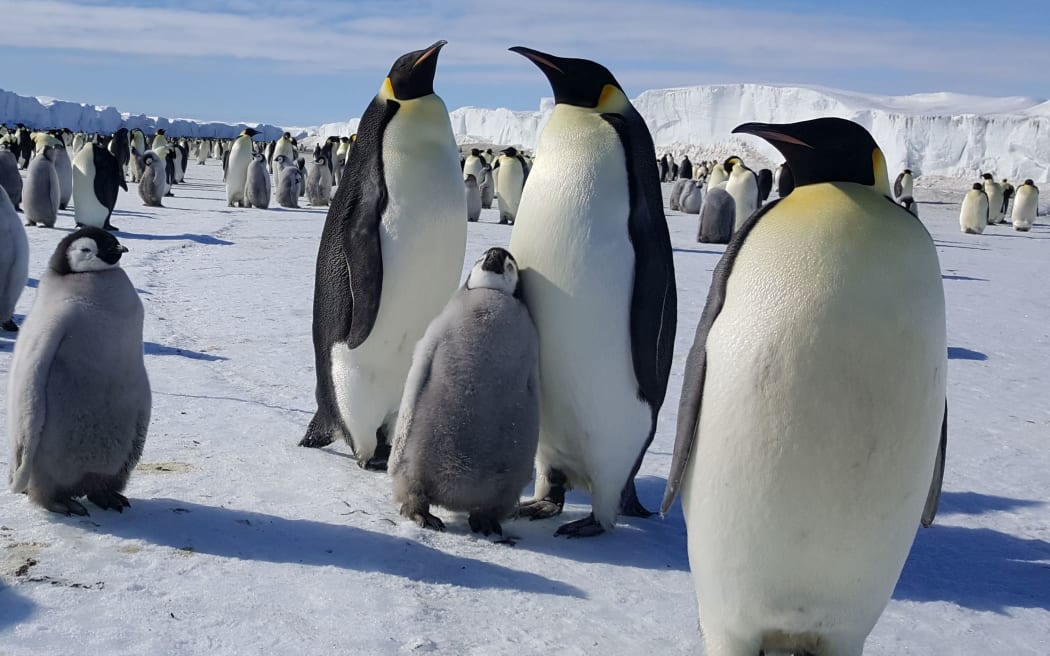
Emperor penguins at Cape Crozier on Ross Island, with the chicks about half-grown. Photo: RNZ / Alison Ballance
Bray points to fresh water as one of the overlooked resources in Antarctica, and the potential for future water wars.
He said once the trust that was built into the treaty erodes, it could lead to competition to the south of Australia.
"The continent has got vast amounts of minerals, hydrocarbons, oil and gas, and you've got 70 percent of the Earth's freshwater locked up in that continent, so China's positioning itself for the long game," Buchanan said.
'Our presence needs to be bolstered'
Dr Buchanan said the Australian government was not taking China's new power status in Antarctica seriously enough.
Australia is "asleep at the wheel", she said.
Buchanan said Canberra also does not have the ability to adequately monitor China and the activity between the Indian and Pacific oceans, which is a strategic arc for fishing.
She called on the government to appoint a formal Antarctic ambassador, invest in more marine vessels, and build capacity in Hobart as a refuelling base that can resupply large icebreakers.
The former Morrison government announced $804 million over 10 years to boost Australia's strategic and scientific capabilities in Antarctica.
But last year, Australia's Antarctic Division told staff it "can't afford all current positions" due to it needing to find A$25 million in savings amid budget pressures.
Buchanan added that relying on one new ice breaker, the RSV Nuyina, which primarily supports Australia's scientific research team in Antarctica, wasn't enough.
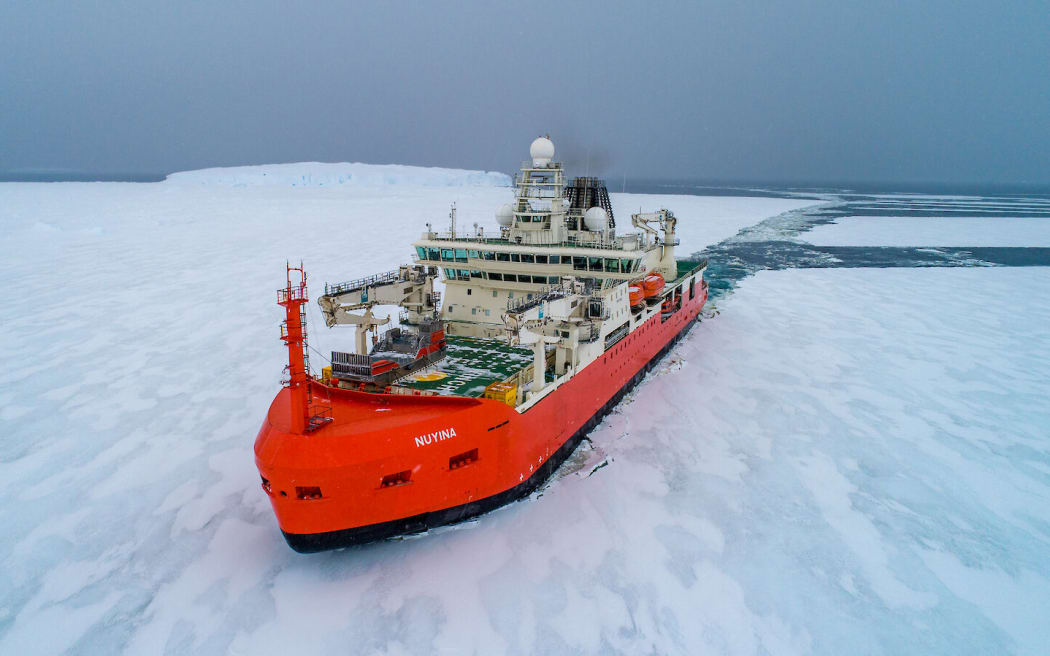
The RSV Nuyina is Australia's new Antarctic icebreaker launched in 2018. Photo: Supplied / Australian Antarctic Program
Bray said despite the investment, Australia still did not have the monitoring capabilities to keep across China's activities.
"China has made it very clear that it wants its fair share out of Antarctica," he said.
The DFAT spokesperson did not directly address questions about insufficient funding, but said: "Australia is committed to the Antarctic Treaty system, and upholding its rules of non-militarisation, environmental protection, and freedom of scientific investigation."
- This story was first published by ABC.
